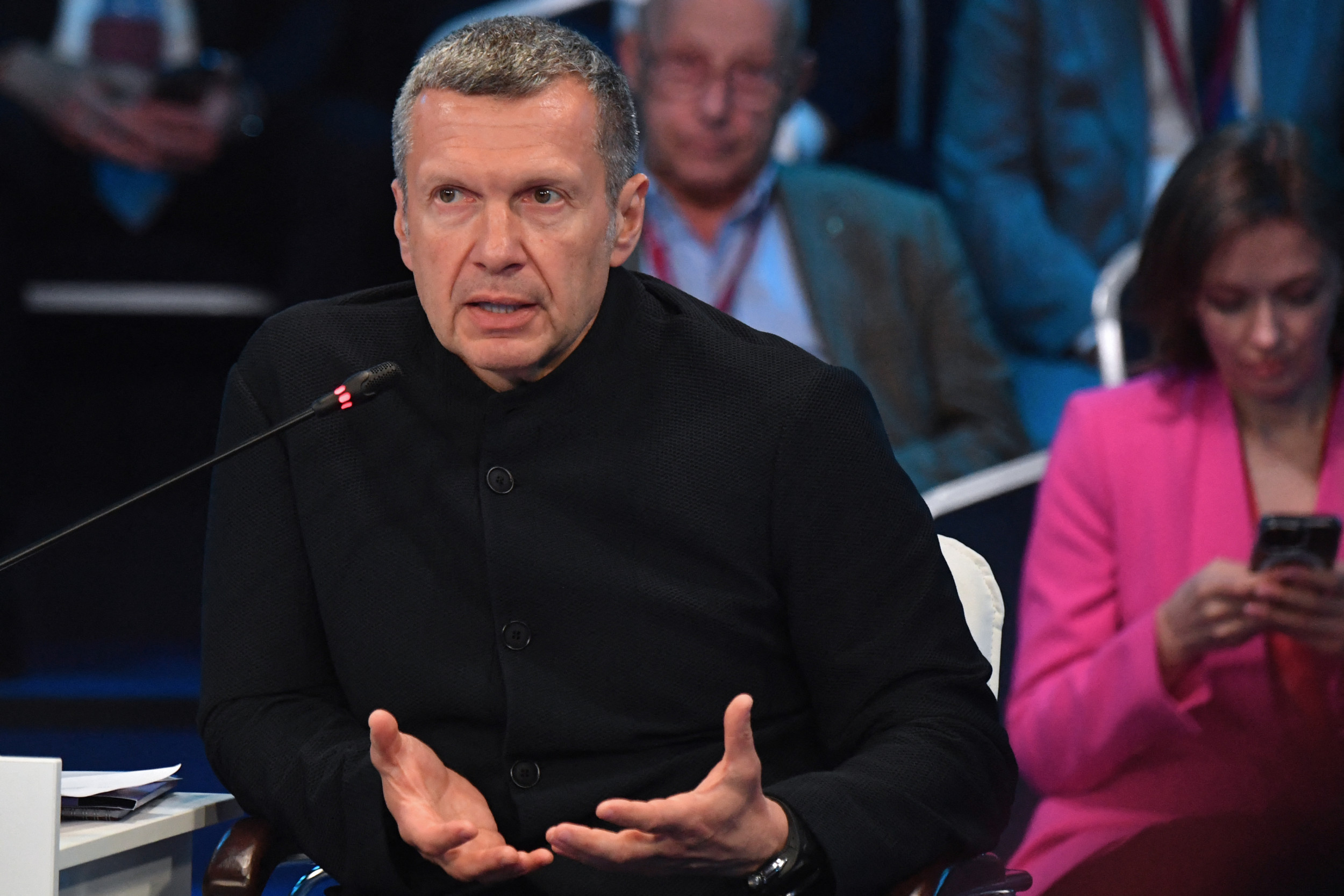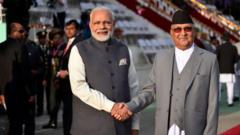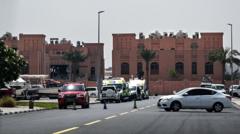Could Putin's Ally Really Launch a Nuclear Strike Over Trump's Comments?

Published: 2025-09-10 21:07:30 | Category: politics diplomacy GNEWS Search
Recent remarks from U.S. Treasury Secretary Scott Bessent regarding potential increased sanctions on Russia have prompted a nuclear threat from a prominent Russian media figure closely aligned with President Vladimir Putin. This development underscores the escalating tensions between Russia and the West amidst the ongoing conflict in Ukraine.
Last updated: 02 October 2023 (BST)
Key Takeaways
- U.S. and EU may implement further sanctions against Russia to destabilise its economy.
- Russian media personalities frequently issue nuclear threats amid the Ukraine conflict.
- Recent comments from a Russian television presenter suggest a willingness to use nuclear weapons if sanctions are intensified.
- Poland has invoked NATO's Article 4 in response to security threats from Russian drones.
- U.S. officials call for stronger sanctions to deter Russia's actions.
Context of the Current Situation
The ongoing war in Ukraine, which began with Russia's invasion in February 2022, has drawn widespread condemnation from the international community. The conflict has not only resulted in significant humanitarian crises but has also raised concerns about global security and the potential for nuclear escalation. In this context, Secretary Bessent's recent statements reflect a broader strategy aimed at crippling the Russian economy through sanctions.
Bessent's Remarks and Their Implications
In a recent interview on NBC's Meet the Press, Secretary Bessent outlined the U.S. strategy of potentially intensifying sanctions against Russia. He stated, "We are prepared to increase pressure on Russia. But we need our European partners to follow us." The emphasis on collaborative efforts between the U.S. and the European Union (EU) highlights the interconnectedness of their economies and the potential effectiveness of their combined actions against Russia.
The Race: Ukrainian Military vs. Russian Economy
Bessent framed the situation as a race: how long can the Ukrainian military sustain its efforts against the backdrop of an increasingly unstable Russian economy? He noted that the imposition of secondary tariffs on countries that purchase Russian oil could expedite the collapse of the Russian economy, thereby compelling President Putin to negotiate. This assertion reflects a strategic approach to weaken Russia's financial resources while supporting Ukraine's military capabilities.
Russian Response: Nuclear Threats and Media Rhetoric
In stark contrast, Vladimir Solovyov, a prominent presenter on Russian state television, responded to Bessent's remarks with a veiled nuclear threat, stating that should sanctions intensify, Russia might resort to its nuclear arsenal. His comment, "We'll just strike with our nuclear weapons, and that's it," indicates a willingness to escalate the conflict should Russia feel cornered by Western actions.
Media Influence and Public Perception
The rhetoric from Russian media figures like Solovyov plays a crucial role in shaping public perception and political discourse in Russia. By framing the situation as one where the West is preparing for war against Russia, these media personalities reinforce a narrative of victimisation and defiance, which resonates with segments of the Russian population. This narrative is vital for maintaining public support for the government's actions in Ukraine.
Escalating Tensions in Eastern Europe
Adding to the complexity of the situation, Polish Prime Minister Donald Tusk reported that 19 Russian drones violated Polish airspace during an attack on Western Ukraine. In response, Poland invoked NATO's Article 4, which addresses threats to national security and allows for consultations among NATO members. This invocation highlights the growing concern among NATO allies regarding the potential for Russian aggression to spill over into neighbouring countries.
International Reactions and Sanction Discussions
U.S. officials, including Energy Secretary Chris Wright, have emphasised the importance of European nations reducing their reliance on Russian energy sources. Wright indicated that a unified stance from Europe on this issue could encourage the U.S. to adopt more aggressive sanctions. Meanwhile, Senator Lindsey Graham has publicly urged the U.S. government to implement "bone crushing new sanctions" against Russia, reflecting a bipartisan consensus on the need for stronger action.
Kremlin's Stance on Sanctions
In response to the escalating calls for sanctions, Kremlin spokesperson Dmitry Peskov reiterated that no sanctions would force Russia to alter its position. This sentiment underscores a determination within the Russian government to maintain its current course, despite the potential economic repercussions of increased sanctions.
What Happens Next?
The current trajectory suggests that tensions will continue to escalate as both sides prepare for potential confrontations. The U.S. and EU are likely to unveil further sanctions, while Russia may respond with increased military posturing and aggressive rhetoric. The situation remains fluid, with developments in Eastern Europe potentially triggering wider regional implications. Observers will be watching closely to see how these dynamics unfold and whether diplomatic avenues can be pursued amid the rising tensions.
FAQs
What are the potential sanctions being discussed against Russia?
The U.S. and EU are considering increased sanctions targeting the Russian economy, particularly focusing on secondary tariffs on countries purchasing Russian oil and gas. These measures aim to exert economic pressure on Russia to compel it to negotiate regarding Ukraine.
How has Russia responded to threats of sanctions?
Russian officials, including media figures, have issued nuclear threats in response to discussions of sanctions, asserting that intensified economic pressure may lead to military escalations, including the potential use of nuclear weapons.
What does invoking NATO's Article 4 mean for Poland?
Invoking NATO's Article 4 allows Poland to consult with other NATO members regarding perceived threats to its national security. This step reflects Poland's concerns about Russian military actions and its desire for collective security assurances from allies.
Why is the situation in Ukraine significant for global security?
The conflict in Ukraine has broader implications for global security, as it raises concerns about territorial integrity, international law, and the potential for nuclear escalation. The outcome may set precedents for how nations respond to aggression in the future.
What role does media play in shaping perceptions of the conflict?
Media figures in Russia, particularly those aligned with the government, significantly influence public perception by framing narratives that justify the government's actions and reinforce a sense of national pride and victimisation in the face of Western opposition.



